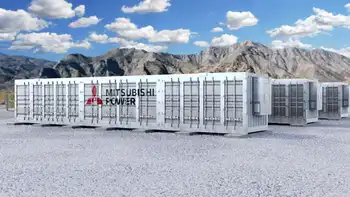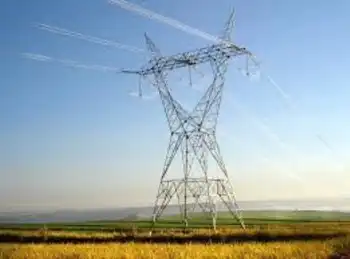Alternative energy companies are bucking the trend
By Connecticut Business News Journal
NFPA 70e Training
Our customized live online or in‑person group training can be delivered to your staff at your location.

- Live Online
- 6 hours Instructor-led
- Group Training Available
Alternative energy, for example, seems poised for growth these days, and certain to benefit from recent U.S. stimulus legislation providing millions of dollars and tax incentives.
Solar companies such as Opel Inc. in Shelton, are trying to ride the wave.
In 2001, several telecommunications industry veterans partnered with engineers from the University of Connecticut to form a company near Storrs to develop a new process for making computer chips, light-emitting diodes and power amplifiers for cell phones.
The company, Opel Inc., was initially funded by federal Department of Defense grants as well as personal capital from the founders.
Five years later, Opel expanded its scope, using gallium arsenide, a compound semiconductor used for optoelectronic devices, to produce solar cells with higher efficiencies than those made with silicon wafers.
"Instead of single-layer, you can build layers optimized for a particular wavelength," explains Frank Middleton, vice president of marketing for the company, whose solar division in Shelton has 18 employees and is a fully owned subsidiary of Opel's International Inc., which is headquartered in Toronto, Canada.
"We increase efficiency of the cell by making it work harder, by concentrating the light 500 times, and we use about 1,100 percent less material than used in a conventional solar panel," Middleton says. "We're replacing solar cell material - both expensive and scarce - with plastic and glass to produce lower-cost product that is more efficient and generates more kilowatts for less dollars."
Sunlight is concentrated by focusing it through a prism onto cells mounted on "a very efficient heat sink" made of aluminum, which "allows us to get rid of the heat without water cooling," Middleton says.
Opel's high concentration PV panels are 40 percent more efficient than panels made with silicon. (The company also makes low-concentration solar panels.)
Another product line is single and dual-action ground-based and rooftop tracking systems for Opel's solar products. The trackers follow the path of the sun, and the most common application is ground-mounted trackers for solar farms and small generator plants.
Rooftop trackers work well on commercial buildings such as warehouses.
"We produce some of the trackers and the majority of metal parts through a subcontractor in Derby," Middleton explains. "The electronics come from Spain and the concentrators are presently being assembled in Mexico."
The company has been awarded 31 U.S. patents.
Opel is concentrating its sales efforts on Europe, where solar installations have surged in Germany, Spain and other countries because governments pay premium prices for renewable energy through so-called feed-in tariffs. The concept is beginning to catch on in the U.S., in places like California and Gainesville, Fla., which on March 1 became the first American city to launch a solar feed-in tariff program.
Last month, Opel created a Brussels-based subsidiary, OPL Solar Europe, allowing it to form joint ventures and limited partnerships. The first two joint ventures are with Alcapi Solarwent Management GmbH (ASM), a German limited-liability company, and with Betasol, a Spanish company building utility-grade solar farms. Opel currently is supplying solar panels to a solar farm in Spain, a Betasol project where Opel's Mk-I high concentration photovoltaic panels, mounted in tracking devices, are producing 440 kilowatts of electricity. The farm is expected to supply power to more than 500 households.
Opel also sees growth opportunities in Canada, where the Ontario legislature recently introduced the Green Energy Act 2009, which includes the development of a feed-in tariff program.
The company has done some projects in Connecticut.
Last November, Opel installed a 9.5-kilowatt system at the Sports Zone in Trumbull, using high- and low-concentration solar panels mounted on a dual-axis tracking system. On March 20, a 131-kilowatt Opel rooftop solar panel tracker system was activated at Linden School in Plainville, and is expected to supply around 20 percent of the school's electricity needs.
Opel has yet to turn a profit, but Middleton and company CFO Michael McCoy expect it will by the end of the calendar year.
The solar division was born in middle of 2006, when funding was running low, Middleton says. In 2007, the company recapitalized by doing a reverse merger with shell of a nearly defunct company listed on the Toronto Ventures Exchange. Swapping stock, Opel became a publicly traded company without an IPO, which allowed money management firms, including alternative energy funds and hedge funds, to invest around $14 million in the company.
Opel raised another $24 million late in 2007 through a secondary offering to new and existing investors (but again no venture capital), and didn't start shipping product until the second half of 2008. Opel expects "a significant jump in revenue" in the first half of 2009, according to Middleton.
"We have orders in-house from European clients and we're working on a number of other contracts, primarily in Europe and some in Asia," Middleton says, adding several California companies also are interested in Opel.
"The bulk of our business last year was in California," McCoy says. "It took a little longer for the European business to develop but it's stronger now."
However, he adds, "I have no doubt the U.S. (business) will become stronger, with all the stimulus money that has to filter out."
Pat Agudow, Opel's vice president of administration and policy management, says U.S. growth could accelerate even more if additional incentives like feed-in tariffs become part of the next round of energy funding.
Opel continues to work in the defense space, designing infrared sensor products with military and industrial applications through its ODIS division, based on the Storrs campus.
Middleton anticipates overall company revenue "in the order of millions this year," and both he and McCoy believe Opel will be profitable by the end of the year.
REvolution Computing is also among those companies that are actually hiring employees.
"We are actively looking for software engineers and marketing folks in the New Haven area," says Richard Schultz, CEO of REvolution Computing, a fledgling statistical software company developing and selling user-friendly products based on R, a statistical graphics and computing language and environment.
"You can think of it like Excel on steroids," explains Schultz, who was co-founder, president and CEO of Metaserver, a New Haven maker and marketer of process-integration software for e-business applications. He started REvolution in 2007, two years after selling Metaserver in a private deal.
"I was looking around for interesting things to do next, so I hooked up with guys at Scientific Computing (a company started by his father, Yale professor Martin Schultz), and they were working on math software for things like simulating oil reservoirs and looking for submarines," Schultz says.
Learning that the software also was gaining "tremendous popularity" for other uses, including drug design, he realized he had found his new project.
"There are older products to do this, but the existing solutions were not open-source and did not have the giant research communities around it," Schultz says. "We acquired Scientific Computing in October 2007 when we founded REvolution." Schultz says.
In December 2007, the company launched its first product, ParallelR, a high-performance version of the open-source R.
Last summer the company unveiled REvolutionR, a commercial version of R, and has since built a customer base of around two million users, including life sciences, pharmaceutical and financial-services companies, according to Schultz.
"We manufacture the software and sell it directly, licensing it on an annual subscription basis, which gives people access to our products and support," Schultz says.
The company was profitable in 2007 but not last year, Schultz says, because of its expansion into financial services and into European and Asian markets.
In early 2008 Intel Capital, the global investment arm of Intel Corp. provided an infusion of Series A financing funds to REvolution.
In exchange for its investment, Intel receives "some stock in the company but they also get a product which is the reason many people are buying modern computers - to do data analysis, simulations and modeling," Schultz says. "The first piece they gave us was $4 million but we may not draw down the next piece because other partners are interested in getting involved.
"It's likely we will make that decision by summer."
REvolution's advisory board includes software veterans Larry Augustin, who founded VA Linux, and CollabNet founder Brian Behlendorf.
The company has offices in New Haven, Seattle, Washington, San Francisco and field personnel in several states, including Ohio and Illinois, and in England, France, Switzerland and Italy.
"As we build this business," says Schultz, "it's really about finding good people."











